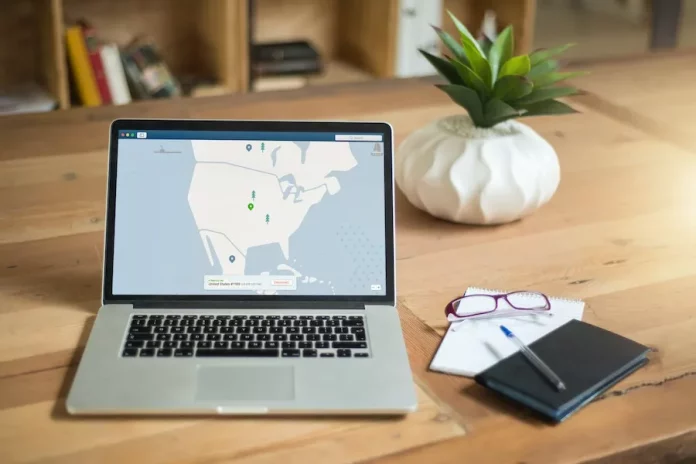If you’re considering using a VPN to protect your online privacy and security, you may wonder if VPNs cost money.
While many VPNs come at a cost, some offer a VPN 30-day trial or even a free version of their service. This allows you to test the VPN for a month before deciding if you want to commit to a paid plan.
Whether you’re looking for a short-term trial period or a more permanent free solution, options are available to fit your needs and budget.
So, let’s dive in and see what the financial landscape of VPNs looks like. But before that, let’s first answer the question,
Do VPNs cost money?
Yes, most VPNs require a subscription fee to use their services. However there are a few free VPNs available, but these often have limited features, slower speeds, and may display ads. Paid VPNs typically offer more features, faster speeds, and better security and privacy protections.
Free VPNs vs. Paid VPNs: What’s the Difference?
When choosing a virtual private network, you can get stuck on whether to use a free or paid option.
While both types of VPNs can be useful in certain situations, you should be aware of the significant differences between the two.
Charges
Free VPNs are exactly what they sound like: VPN services are available at no cost.
These can be attractive options for people looking for a quick and easy way to protect their online privacy and security.
However, free VPNs often have limitations and downsides, making them less effective than paid VPNs.
Speed & Reliability
One of the main drawbacks of free VPNs is that they often have slower speeds and less reliable connections than paid VPNs.
This can be frustrating when you’re trying to stream video or download large files. Free VPNs may also have data caps or bandwidth limits that restrict how much you can use the service.
Security level
Another issue with free VPNs is that they may not offer the same security and privacy protection as paid VPNs.
Many free VPNs have weak encryption standards or may log your data and sell it to third parties. This can compromise your privacy and leave you vulnerable to cyber threats.
Paid VPN is the real deal
Paid VPNs, on the other hand, offer more features, faster speeds, and better security and privacy protections.
These services typically require a subscription fee but often offer a wider range of servers, more advanced encryption standards, and better support.
Paid VPNs may also offer additional features such as ad blocking, malware protection, and the ability to access content that is blocked in your region.
Is a Free Trial or Money-Back Guarantee A Real Thing?
When shopping for a virtual private network (VPN), you may come across offers for a free trial or money-back guarantee.
Many paid VPN service providers offer a free trial or money-back guarantee for potential customers to try the service before committing to a long-term subscription. But what exactly are free trials and money-back guarantees, and how do they work?
Free trial
Free trials allow you to use the VPN for a limited period, usually a few days or weeks, without paying a subscription fee. This can be a good way to test the VPN and see if it meets your needs before committing.
Money back guarantee
On the other hand, money-back guarantees allow you to request a refund within a certain timeframe, usually 30 days or longer if you’re unsatisfied with the VPN service.
This can be a good option if you’re unsatisfied with the services offered or forgot to end the free trial and have been mistakenly charged.
It’s important to note that not all VPNs offer a free trial or money-back guarantee, and the terms and conditions of these offers can vary widely.
Be sure to carefully read and understand the terms of any free trial or money-back guarantee before signing up for a VPN subscription.
What Are Some Of The Benefits Of Using VPN?
There are several benefits to using a virtual private network (VPN). Some of the main benefits include:
- Improved online privacy: A VPN helps to protect your online privacy by encrypting your internet traffic and disguising your IP address. This makes it difficult for anyone to track your online activities and see what you are doing on the internet.
- Better security: these tools can also help protect you from cyber threats such as viruses and malware by encrypting your internet traffic and routing it through secure servers.
- Access to blocked content: with VPNs, you can access websites and content that may be blocked in your region due to censorship and geo-restrictions.
- Anonymous browsing: With the help of VPNs, you can now browse the internet anonymously as their IP address are masked, making it harder for anyone to monitor your online activities.
- Improved streaming experience: You can improve your streaming experience by using VPNs, as they are known to increase the speed and reliability of your internet connection.
Conclusion
VPNs generally cost money, although a few free options are available. Paid VPNs typically offer more features, faster speeds, and better security and privacy protections than free VPNs, but they can vary widely in terms of cost.
It’s important to carefully research and compares different VPNs to find the one that best fits your needs and budget.
Some paid VPNs offer a money-back guarantees or free trials, which can be a good way to try a VPN and see if it meets your needs before upgrading. Ultimately, whether or not a VPN is worth the cost will depend on your specific needs and how you plan to use it.












